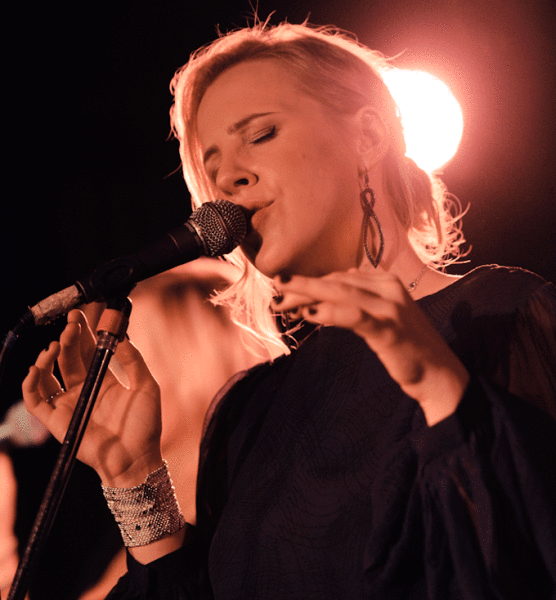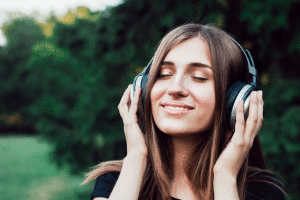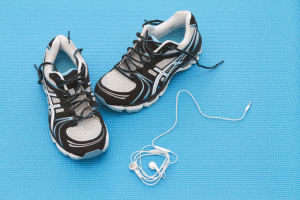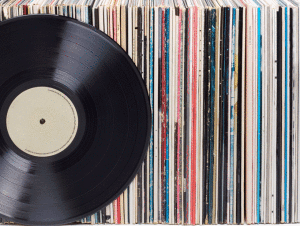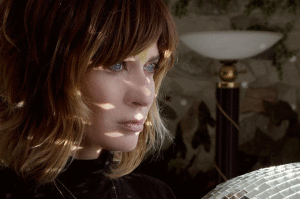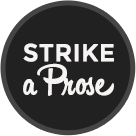When singer-songwriter Whitney Nichole isn’t composing music or performing in front of live audiences, you’ll find her in the San Francisco music studio she founded with her husband, photographer Niall David, doing one of her favorite things in the world: teaching students how to find their voice. Since launching her business, Songbird Studios, back in 2009, Nichole has not only released her first full-length album, 100 Strong, and performed her pop songs around the country. She’s also been getting singers both young and old excited in music and enjoying the exhilarating rewards of expressing themselves creatively.
Here, Nichole talks to Red Typewriter about the mood-boosting, brain-nurturing, confidence-building benefits of singing your heart out.
RT: What’s so great about teaching people how to sing?
WN: It’s incredibly rewarding. Singing is such a vulnerable experience, and for someone to allow you in, to open up and sing in front of you, is an honor. Then, to watch that same singer develop and grow and start to love their sound, and ultimately OWN their voice, is just incredible! It’s such an inspiring way to spend your career. Think about it: I sing beautiful music all day with people who love to sing! Every singer is unique, so each journey is different, but ultimately seeing the breakthroughs, the change, the progress is just so rewarding.
RT: What would you tell a woman who says, “I don’t have a good voice and I never will”?
WN: Music can benefit everyone. It heals, it strengthens, it changes you, and your voice is integral to who you are as a human. You don’t need to sing like Adele or Mariah Carey to enjoy it. Sure, there’s no denying some folks are born with raw talent, but I don’t believe in “bad” voices—although you can have unhealthy technique. I find that often times, those who think they “can’t” sing have experienced something in their lives where someone put them down, made fun of them or judged them for their voice (generally as a child). For whatever reason, they shut down that part of themselves and stopped singing, so they never got to really know or explore their own voice. I love helping people reconnect with their voices, and one-on-one, private lessons are a safe way to do that. Each person has a unique sound, and voice lessons [should be] about experimenting and learning the ins and outs of your vocal instrument and how you can use it to express yourself.
RT: What happens to our brains when we sing?
WN: SUCH good things! Studies have shown that the vibrations from singing help soothe and reduce stress, and the hormones released when we sing help significantly with mood and energy. Not to mention the emotional benefits of expressing all different kinds of emotions through song, and how much singing can connect you with yourself and others. Singing has such a powerful impact on the human brain that it’s used in therapy for things ranging from depression to autism to dementia. Singers are generally happier, calmer and more well-adjusted humans. (OK, sometimes we can also be a bit “diva-esque,” but I prefer the term confident.) With all these benefits, who doesn’t want to sing!?
RT: What do you think of the Auto-Tune trend?
WN: I’m not a huge fan of Auto-Tune, but every once in a while I can acknowledge its value as an artistic tool—for producers and recording artists to bend sound, push boundaries, etc. What I don’t love is its overuse in pop music, especially when singers lean on Auto-Tune instead of learning to sing better. So often we see pop stars who can’t deliver a live show (vocally speaking) that’s on par with their recording. Plus this Auto-Tune (add over-compression, layering, etc.) in recordings can mislead listeners—and your average singer wonders why they don’t sound like the mixed and mastered Katy Perry song on the radio. I personally prefer raw and natural vocalists, those singers who you know can do what they are doing every day of the week if need be Singers like Adele, Jennifer Hudson, Ed Sheeran, just to name a few, have very unique voices that, instead of being “perfect,” are actually more memorable.
RT: Do you sing in the shower? Why do we sound better under running water?
WN: Haha, yes! I definitely get down with some of my favorite songs in the shower. That’s where I generally do my warm-ups for the day as well. The shower is a great place to use your pipes, because not only are you in a private space all by yourself, but the steam creates a warm and humid room, which gives hydration and, as I like to put it, a little extra “love” to your throat and vocal folds. To top it off, you’re standing, usually with pretty good posture. Who washes their hair while slumping?


